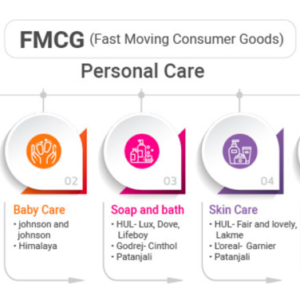FMCG Recycling| colour code

What is the Meaning of FMCG Products
FMCG stands for Fast Moving Consumer Goods. These are merchandise which might be bought speedy and at a relatively low value. FMCG products encompass objects like meals and beverages, personal care merchandise, family cleansing products, toiletries, and over-the-counter drug treatments. They are typically non-long lasting items, that means they may be fed on fairly quickly and have a common turnover. FMCG agencies often rely upon excessive quantity sales and full-size distribution networks to generate income.

The Imperative for FMCG Recycling
FMCG merchandise, through their very nature, have a excessive turnover fee, resulting in giant quantities of packaging waste. Plastic bottles, meals bins, wrappers, and cardboard packing containers flood landfills, contributing to environmental degradation. Recognizing this undertaking, FMCG businesses are an increasing number of prioritizing recycling as a means to mitigate their effect at the surroundings.

Embracing Circular Economy Principles
At the coronary heart of FMCG recycling efforts lies the idea of the circular economy. Instead of the traditional linear model of ‘take-make-dispose,’ FMCG agencies are transferring toward circularity, wherein materials are reused, recycled, or repurposed. This paradigm shift emphasizes no longer most effective environmental obligation however additionally financial possibility.
Innovations in Packaging Design
Central to FMCG recycling is the redesign of packaging substances. Companies are making an investment in studies and development to create packaging that isn’t always handiest practical however additionally environmentally friendly. Biodegradable plastics, compostable packaging, and progressive substances derived from renewable assets are gaining traction, reducing the reliance on conventional plastics derived from fossil fuels.
Infrastructure Development
FMCG recycling tasks depend closely on sturdy recycling infrastructure. Companies are collaborating with governments, NGOs, and waste management organizations to enhance series, sorting, and recycling procedures. Investments in recycling centers, sorting technology, and public cognizance campaigns are crucial additives of this infrastructure improvement.

Consumer Engagement and Education
Engaging clients in recycling efforts is crucial for success. FMCG groups are imposing strategies to teach consumers approximately the importance of recycling, right waste segregation, and the environmental blessings of choosing recyclable merchandise. Reward programs, instructional campaigns, and consumer-friendly recycling tasks are empowering customers to participate actively in sustainability efforts.
Partnerships and Collaboration
FMCG organizations are recognizing the strength of collaboration in driving recycling initiatives forward. Partnerships with recycling organizations, packaging suppliers, shops, and other stakeholders are fostering innovation and growing synergies. By pooling sources and knowledge, those collaborations are accelerating the transition toward a more sustainable destiny.
Case Studies in FMCG Recycling Success
Several FMCG businesses are main the price in recycling innovation. Procter & Gamble, for instance, has dedicated to creating a hundred% of its packaging recyclable or reusable through 2030. Unilever is pioneering tasks together with fill up stations and reusable packaging to lessen waste. Coca-Cola has released formidable packages to collect and recycle its bottles, aiming to create a circular economy for plastic packaging.
The Road Ahead
While enormous progress has been made, challenges stay on the street to FMCG recycling excellence. Infrastructure gaps, purchaser behavior, and monetary viability are hurdles that ought to be triumph over. However, with continued innovation, collaboration, and commitment, the FMCG quarter has the ability to force significant exchange in the direction of a extra sustainable destiny.
FMCG recycling is not only a trend; it is a need inside the quest for environmental sustainability. By embracing circular economy standards, making an investment in innovation, and fostering collaboration, FMCG groups are reshaping the enterprise panorama. With every recycled bottle, every repurposed package deal, and every informed client, the FMCG area movements towards unlocking a destiny where waste is minimized, assets are maximized, and sustainability reigns ideal.
